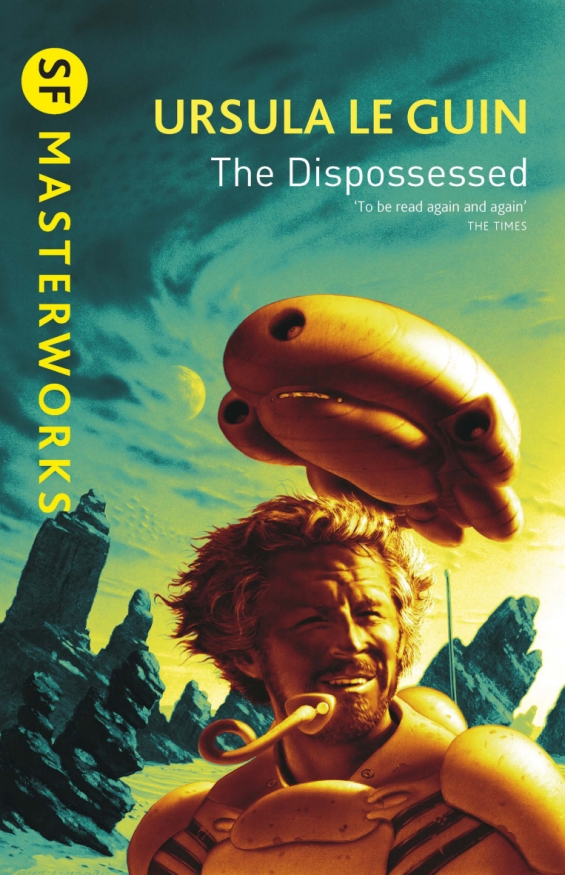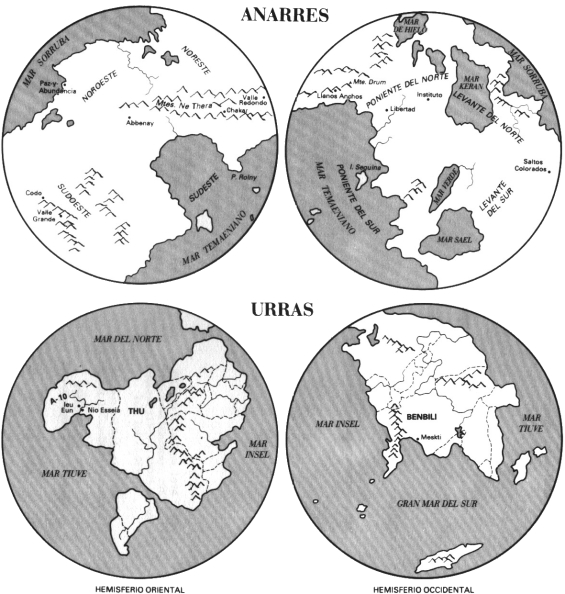
 The SFFaudio Podcast #222 – Jesse, Jenny, Paul Weimer and Bryan Alexander discuss Nineteen Eighty-Four by George Orwell.
The SFFaudio Podcast #222 – Jesse, Jenny, Paul Weimer and Bryan Alexander discuss Nineteen Eighty-Four by George Orwell.
Talked about on today’s show:
The audiobook, Recorded Books, the appendix, The Lord Of The Rings, the feeling in your right hand, a dream-like book, Room 101, a disjointing of time, Infinite Jest by David Foster Wallace, Signet Classic, already a member of the Junior Anti-Sex League at 12, a 1971 sex drive, memory, Winston Smith’s obsession with the past, the three traitors, the Soviet Union as applied to Britain, show trials, it is so effective, The Running Man is a prole version of Nineteen Eighty-Four, “WHITMAN, PRICE, AND HADDAD!!! You remember them! There they are now, BASKING under the Maui sun.”, down the memory hole, the brutality of the movies and the applause of the audience, the crushing of weakness, the terrible children, the 1954 BBC TV version starring Peter Cushing, Winston’s own memories of his childhood, did Winston kill his sister, his bowels turn to water when he see a rat, the return of the mother, a bag of decay, the 1984 version of 1984, John Hurt looks like he was born to play Winston Smith, is it Science Fiction?, dystopia, does this feel like Science Fiction?, Social Science Fiction, If This Goes On… by Robert A. Heinlein, Animal Farm, Goldstein’s Book, the re-writing of history, collapsing the vocab, The Languages Of Pao by Jack Vance, Babel-17 by Samuel R. Delany, The Embedding by Ian Watson, Isaac Asimov’s review of Nineteen Eighty-Four, Orwell imagines no new vices, WWIII, in regular SF we get used to a lack of motifs, the coral, the memories, the place with no darkness, everything is recycled in a dream and people merge, in dream logic 2+2 can equal 5, reduction of the world and the self, Brave New World by Aldous Huxley, soma, The Hunger Games, Wool by Hugh Howey, cleaning day, grease, transformed language, a crudboard box, euphony, a greasy world, a comparison to We by Yevgeny Zamyatin, We The Living by Ayn Rand, Harcourt Brace, Politics And The English Language by George Orwell, V For Vendetta, Norsefire vs. IngSoc, a circuitous publishing history, crudpaper, prole dialect, part dialect, New Speak, military language, Generation Kill, military language is bureaucratic language, Dune by Frank Herbert, Battle Language, private language, Brazil, the thirteen’s hour, The Canterbury Tales by Geoffrey Chaucer, victory means shit, Airstrip One, speakwrite, Star Wars, careful worlding, a masterwork, a transformation and an inoculation, watch 1984 on your phone while the NSA watches you watch it, North Korea, “without getting to political”, 2600‘s editor is Emmanuel Goldstein, the traitor Snowden, that’s what this book is, it’s political, The Lives Of Others, hyper-competent, the bedroom scene, “We are the dead.”, how did the picture break off the wall, dream-logic, Jesse knows when he’s dreaming, if you dream a book you must generate the text, dreaming of books that don’t exist, a great sequel to Ringworld?, The Sandman, “We shall meet in the place where there is no darkness.”, O’Brien, Martin, the worst thing is you can’t control what you say when your sleeping, uncanny valley,
Whatever it was, you could be certain that every word of it was pure orthodoxy, pure IngSoc. As he watched the eyeless face with the jaw moving rapidly up and down, Winston had a curious feeling that this was not a real human being but some kind of dummy. It was not the man’s brain that was speaking, it was
his larynx. The stuff that was coming out of him consisted of words, but it was not speech in the true sense: it was a noise uttered in unconsciousness, like the quacking of a duck.
Polar Express, the book within the book, high end books, Fahrenheit 451 by Ray Bradbury, is London the capital of Oceania?, the value of the book, Stephen Fry’s character, a book that tells you only things you already knew, The Man In The High Castle by Philip K. Dick, the possibilities of other books, supercharged moments in movies, Twelve Monkeys, Dark City, Book Of Dreams, utopias within dystopias, reading in comfort and safety, the golden place, Julia is a pornosec writer, Robert Silverberg, Lawrence Block, Donald E. Westlake, Marion Zimmer Bradley, The Processed Word by John Varley, Russian humor, is there really a war?, power is the power to change reality, Stephen Colbert’s truthiness, doublethinking it, the proles seem to be happier, feeling contempt, lottery tickets depress Jesse, “renting the dream”, the proles are obsessed by lotteries, who is the newspaper for?, the chocolate ration, Larry Gonick’s The Cartoon History Of The Universe, how stable is Oceania?, guys and Guy, how stable is North Korea?, Christopher Hitchens, there’s no hope in 1984, the subversion mechanism has been subverted, changing human behavior, Walden Two by B.F. Skinner, Faith Of Our Fathers by Philip K. Dick, genocide, racial purity, are they bombing themselves?, where does Julia get all her treats?, utopia is a nice cup of coffee, The Principle Of Hope by Ernst Bloch, what’s missing from your life comrade?, is Julia playing a role?, she’s the catalyst for everything, misogyny vs. misanthropy, Nietzsche’s master morality slave morality, political excitement is transformed into sexual excitement, ‘I have a real body it occupies space (no you don’t you’re a fictional character)’, Julia’s punk aesthetic, I love you., she’s the dream girl, the romantic couple that brings down the bad order, The Revolt Of Islam by Percy Bysshe Shelley, Pacific Rim, The Matrix, Equilibrium, Mephistopheles, Mustapha Mond, Jesse thought she was in on it, the prole lady out the window, nature, ragged leafless shrubs, nature has been killed, the Byzantine Empire, the Catholic Church, cult of personality vs. an idoru Big Brother, Eurythmics, we’re nostalgic for the Cold War, the now iconic ironic 1984 Apple commercial, dems repubs NSA, has Britain been secretly controlling the world using America?, George Bernard Shaw, society and politics, SF about the Vietnam War, petition for and against the war, Judith Merril, The Forever War by Joe Haldeman, The Handmaid’s Tale by Margaret Atwood, China.






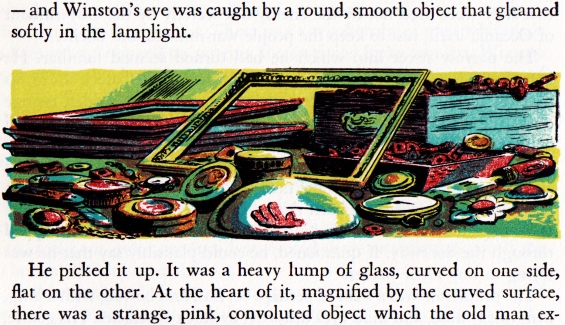

Posted by Jesse Willis

 The SFFaudio Podcast #242 – Herland by Charlotte Perkins Gilman, read by William Dufris.
The SFFaudio Podcast #242 – Herland by Charlotte Perkins Gilman, read by William Dufris. 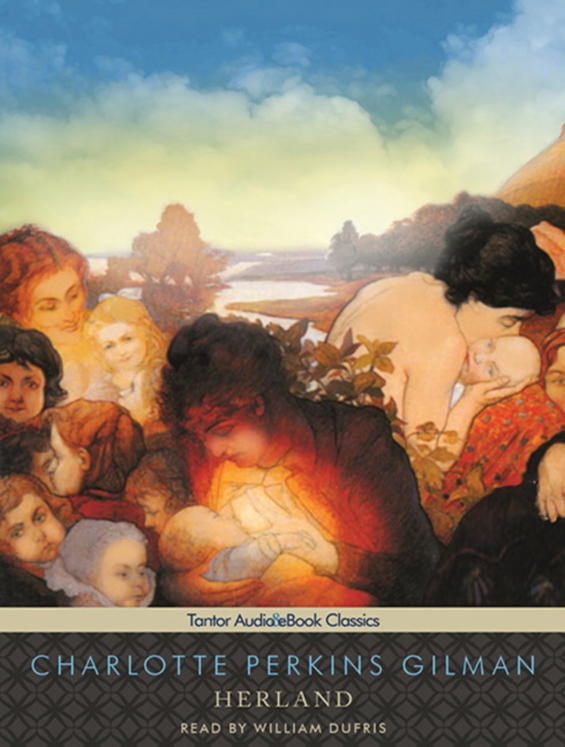



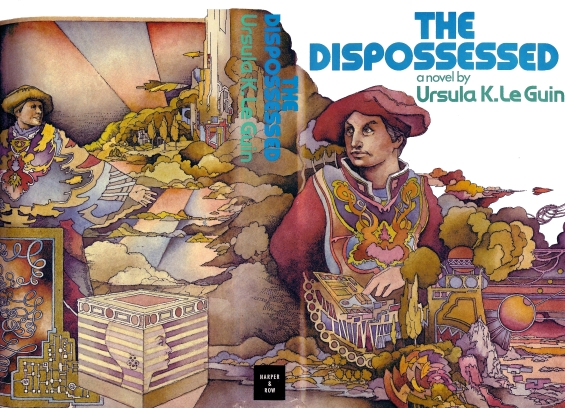
 The Vanishing Point – The Dispossessed
The Vanishing Point – The Dispossessed 